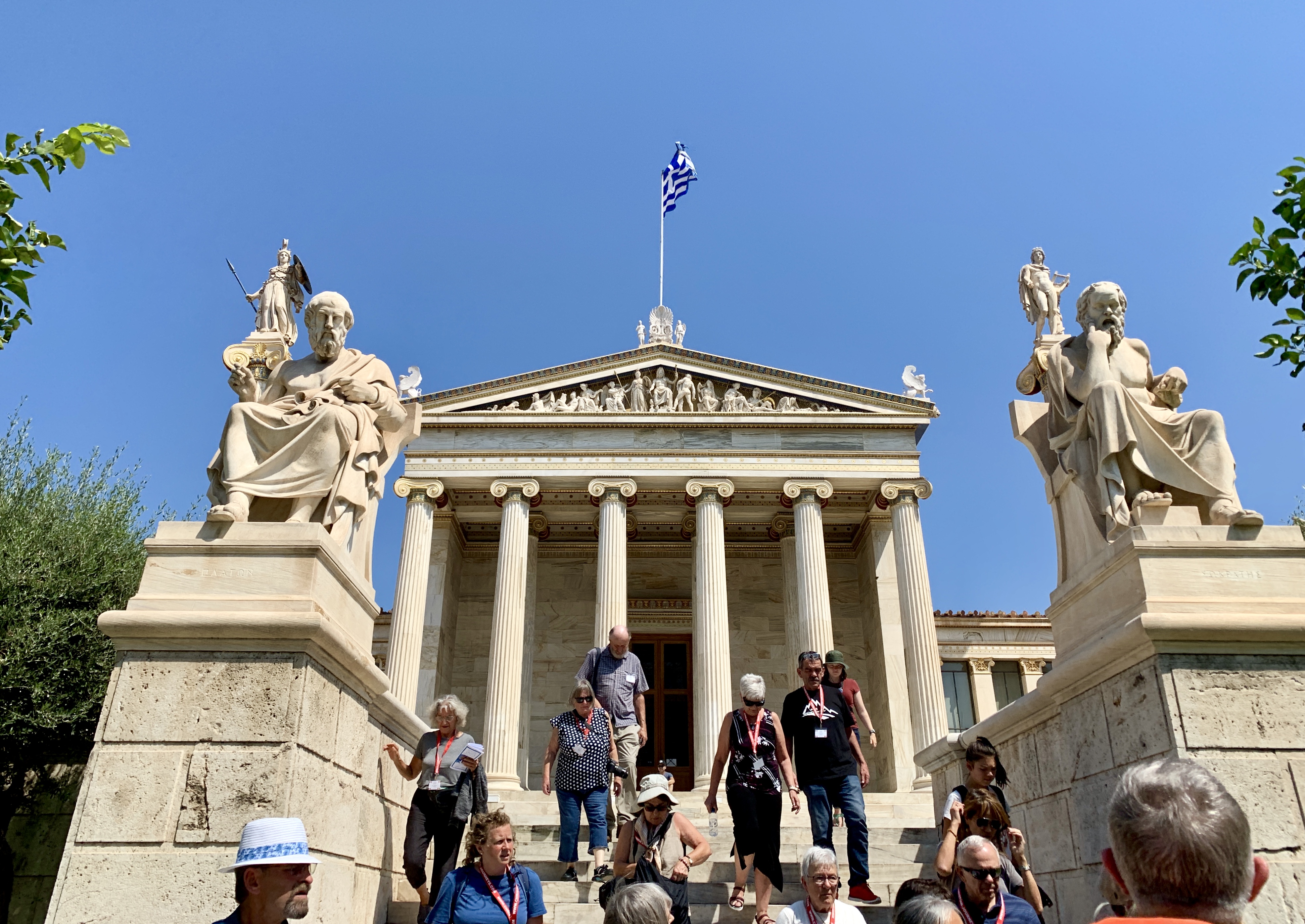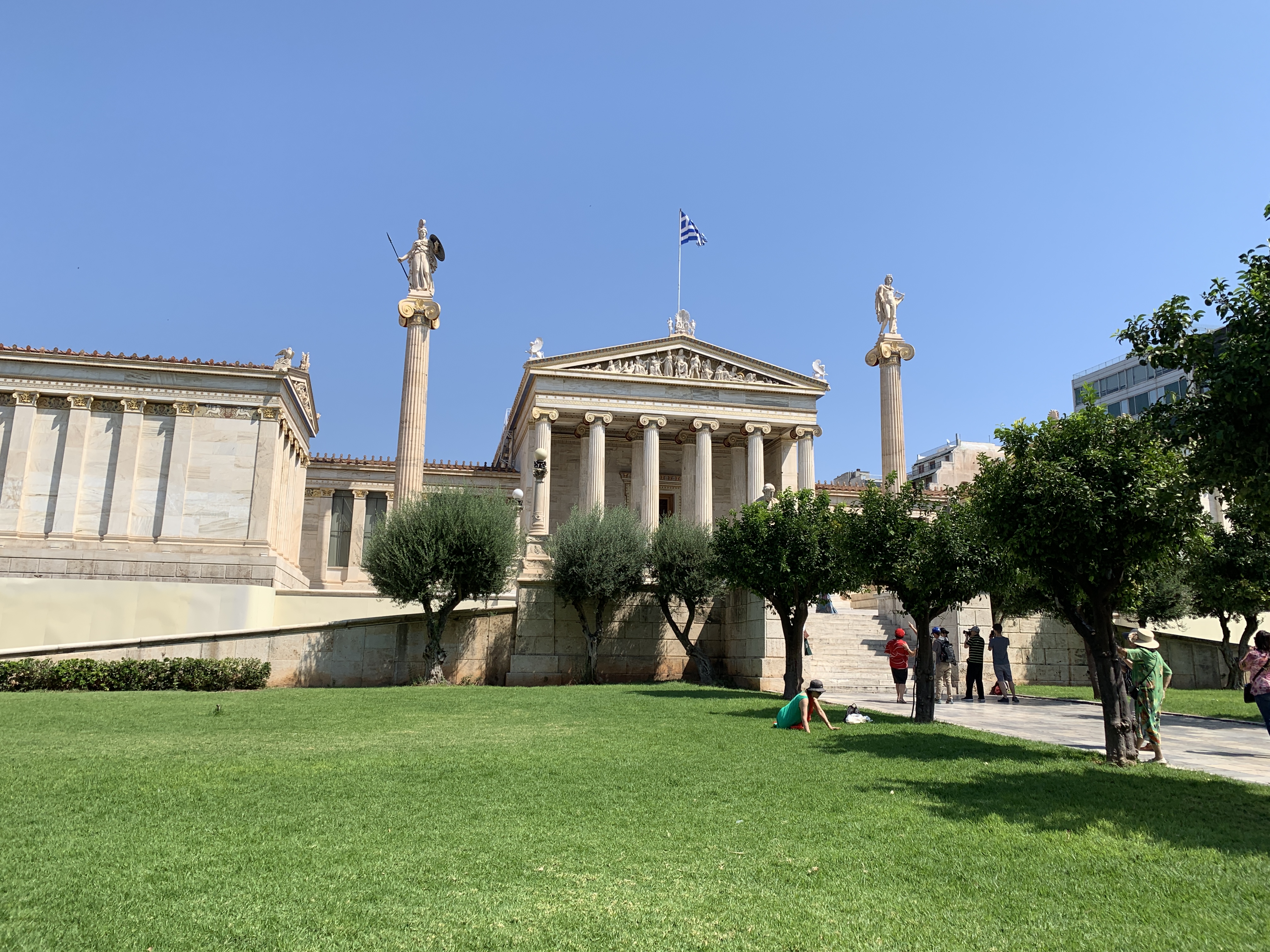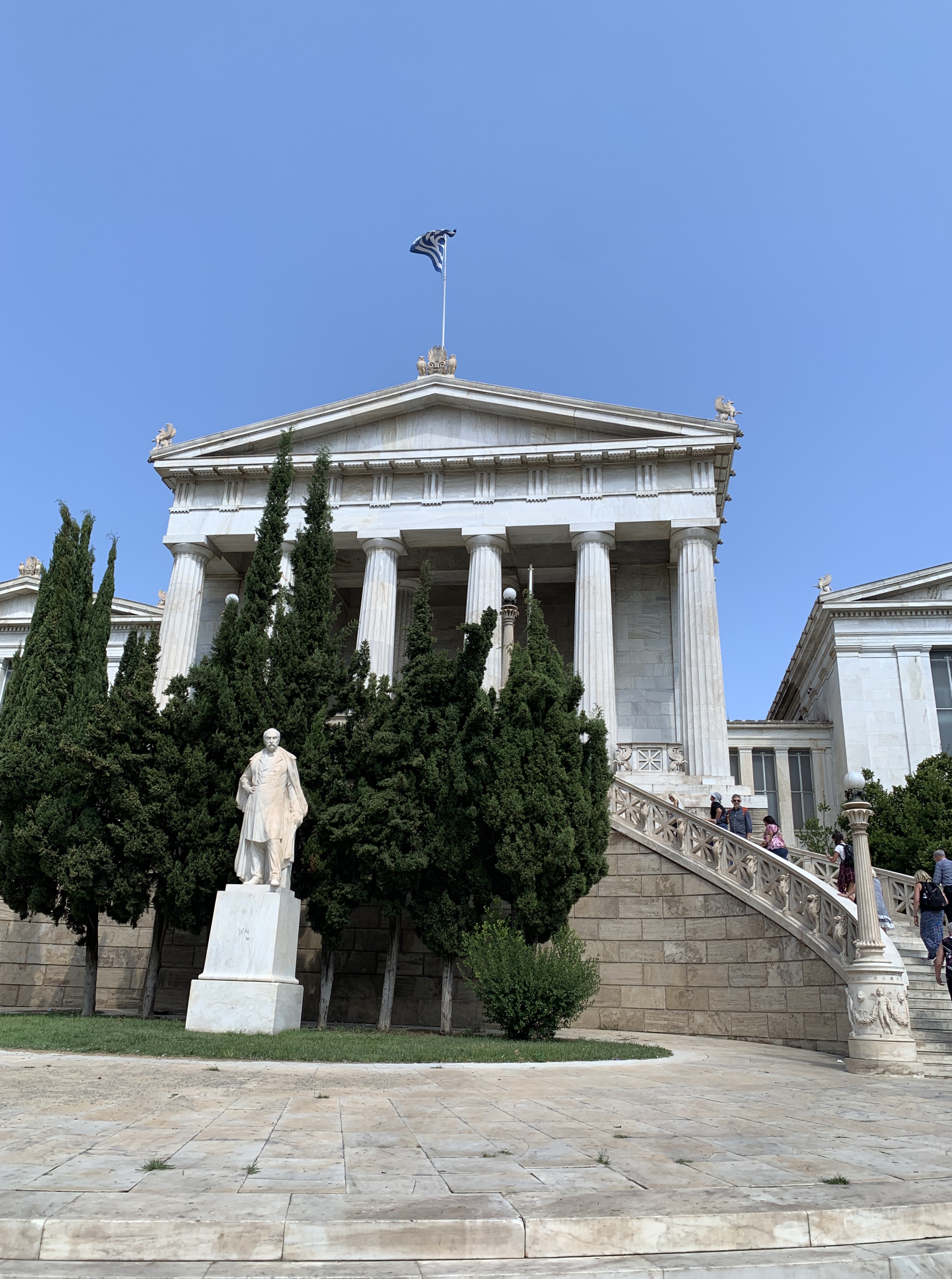We drive from the Athens airport past the 2004 Olympics stadium, relic of that event which pretty much ruined the already tired Greek economy. (It had to be spectacular because this was where the Olympics began…)
Athens has none of the regular features that made an ancient city great: no high elevation, no fertile land, no great water supply. What supported the rise of this city? Tears pricked my eyes as I heard the true answer, like the song of a guitar strum: philosophers. Ideas. Ideals. Illustrious thinkers and teachers.
Out at the Palace, the guard changed: tall Greek men who might as well be ballet dancers as soldiers. Flowing white sleeves and skirts, prancing legs, and shoes that sounded like hoofs on concrete. In a throwback to ancient lore, these soldiers must not only be the men of war, but also their horses. So we have a kind of centaur dance: you can almost hear them whinny as they stamp and shuffle, kick and tip like stallions and riders on parade. When they finally settle into place, becoming modern statues, a dresser comes forward to realign the finishing touches: a pleat here, a tassel there. Greek past and present co-mingle. An over-eager American tourist twice gets too close. The “statue” taps the butt of his gun on the ground. The man is shushed and moves farther away. If only all guns were so used in America too!

At the Houses of Parliament, Plato and Socrates endlessly, wearily look down at we the riff raff. Over their shoulders soar Athena, goddess of wisdom and war – what use is there in “knowing” without the drive to “do”? – and Apollo, god of beauty and healing – what use is there in knowing and doing if not endued with wonder and mercy?

And that’s what makes Greece great. This layering. The blurring line between what is essential and revealed, between myth and reality. Myth strives to show itself true in the shuffle of centaurs, centuries after everyone knew there was no such thing. It shines in soaring deities whispering to philosophers’ ears, whose crumbs under the table fall for us to peck at like mere sparrows. Shimmers in the folly of stadium’s stones, still worth their weight in gold for the history they attempt to restore.

Dusty, weary, bravely we tromp on through the streets of Athens, mouths shut, eyes open, pausing at balustraded library stairs. The Parthenon. (Not the Pantheon, where deity resides, but this place that honours Athena (“par-Athenon”) and wisdom waits under book covers amid walls are as gloriously bright as a child’s mind).
Athens is named for her, sweet Wisdom. And doesn’t Proverbs tell us that lady wisdom is the fairest of them all? We hope she cries to us, as we embark our journey into this land of paradox, where 95% are orthodox, thanks to long ago, a lonely, tireless Jew preaching Christ.
There’s transformation available in the moment of transition from long ago to here and now, expressed in their prancing, in their parliament where gods confer with sages, in their Parthenon of sacred secrets, and in their over-the-top stadium. We too want to believe.
We want to hear the name “Jesus” linked with “Anastasia”, and be taught, as the confused Athenians of old were, that these are not titles of a god and goddess, but words meaning Saviour and Resurrection, displayed not in a carved statue or ornamental soldier, but in a trembling human being, whispering not from afar but God come near.
This is the transition we strive to enter. The Word made flesh. Dwelling among us, sparrows that we are.
